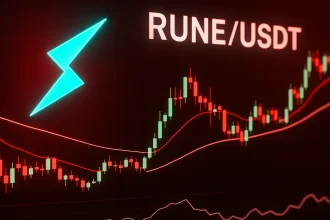Regulatory Developments Across the Globe
In a significant move, Japan’s Financial Services Agency (FSA) is considering new regulations to classify cryptocurrencies as financial products subject to insider trading laws. This proposal would encompass 105 cryptocurrencies, including Bitcoin and Ethereum, and mandate exchange service providers to disclose risks like price volatility. Additionally, the FSA plans to reduce the tax rate on cryptocurrency profits from a maximum of 55% to 20%, aligning it with stock trading taxes. The agency aims to present the necessary legislation in the upcoming parliamentary session.
Meanwhile, Brazil’s central bank has introduced new regulations for the cryptocurrency sector, extending anti-money laundering and counter-terrorism financing measures to virtual asset service providers. Set to take effect in February 2026, these rules require authorization for foreign-exchange and securities brokers and define transactions involving fiat-pegged virtual assets, such as stablecoins, as foreign exchange operations. The regulations also impose standards on consumer protection, transparency, governance, internal controls, security, and regulatory compliance. This initiative addresses concerns about the use of stablecoins in circumventing regulated financial systems and facilitating illicit finance.
In the United States, the Securities and Exchange Commission (SEC) is preparing to establish a classification system for digital assets, particularly crypto tokens, to determine when they should be considered securities. SEC Chair Paul Atkins announced plans for a “token taxonomy” grounded in legal interpretations distinguishing securities from commodities. This move aims to provide clearer regulatory frameworks and respond to the crypto industry’s calls for greater jurisdictional clarity. The SEC also plans to offer exemptions for digital assets identified as securities, allowing for tailored investment regimes.
Market Movements and Institutional Adoption
Bitcoin has experienced notable volatility recently. After reaching an all-time high of over $126,000 in October, it fell to below $100,000 before recovering to approximately $106,460 by mid-November. Experts attribute this fluctuation to Bitcoin’s limited supply and predictable issuance, suggesting it could serve as a hedge against inflation and fiat currency devaluation. Increasing institutional adoption and maturing regulation further support Bitcoin’s growing legitimacy. While often correlated with traditional markets like the S&P 500, Bitcoin can act as a portfolio diversifier. A balanced strategy, with a 2% Bitcoin allocation, is suggested to potentially enhance returns without significantly increasing volatility.
Institutional interest in Bitcoin continues to rise. The launch of BlackRock’s iShares Bitcoin ETF (IBIT) on the Australian Securities Exchange (ASX) in mid-November marked a pivotal milestone. Offering a 0.39% management fee, the ETF mirrors its U.S. counterpart, which has amassed over $98 billion in assets under management since its 2024 debut. This expansion into Australia, a market with stringent regulatory frameworks, signals growing institutional confidence in Bitcoin’s legitimacy. JPMorgan’s strategic alignment with this trend further underscores the shift. The bank’s holdings in BlackRock’s IBIT surged by 64% in Q3 2025, reaching $343 million, despite CEO Jamie Dimon’s public skepticism. This discrepancy highlights the growing influence of institutional demand, as banks and endowments hedge against macroeconomic uncertainties.
Technological Innovations and Partnerships
Coinbase Global has launched a new platform that allows individual investors early access to digital tokens before they are officially listed on its exchange. This initiative aims to meet the rising demand from retail and institutional investors, offering about one token sale per month. Token allocation will be guided by an algorithm, and investors can submit purchase requests during a one-week window. The platform addresses a key challenge for token issuers—distributing tokens to genuine users while establishing exchange liquidity. This marks the first widespread opportunity for U.S. users to participate in public token sales since 2018.
In Hong Kong, the government is marketing its third blockchain bond offering across four currencies as the city intensifies efforts to become Asia’s leading crypto hub. The plan includes selling tokenized green bonds denominated in U.S. dollars, Hong Kong dollars, euros, and offshore yuan. This marks Hong Kong’s third blockchain-based bond sale since 2023. The city is utilizing blockchain bonds to demonstrate that distributed ledger technology can drive institutional-grade finance, digitizing traditional financial products to show mainstream institutions that blockchain infrastructure is effective for regulated securities.
Legal Actions and Enforcement
In a landmark case, Chinese fraudster Qian Zhimin, also known as Yadi Zhang, was convicted in September 2025 at Southwark Crown Court in London for illegally acquiring and possessing more than £5 billion worth of Bitcoin. She attempted to launder the proceeds in the UK. This case is believed to be the single largest cryptocurrency seizure in the world, involving multiple jurisdictions. Qian conducted a scam in China between 2014 and 2017 using her company Lantian Gerui, involving more than 128,000 victims who transferred funds that she converted into Bitcoin. She was sentenced to 11 years and eight months in prison on November 11, 2025.
These developments underscore the dynamic and rapidly evolving nature of the cryptocurrency landscape, highlighting the interplay between regulatory actions, market movements, technological advancements, and legal enforcement on a global scale.






